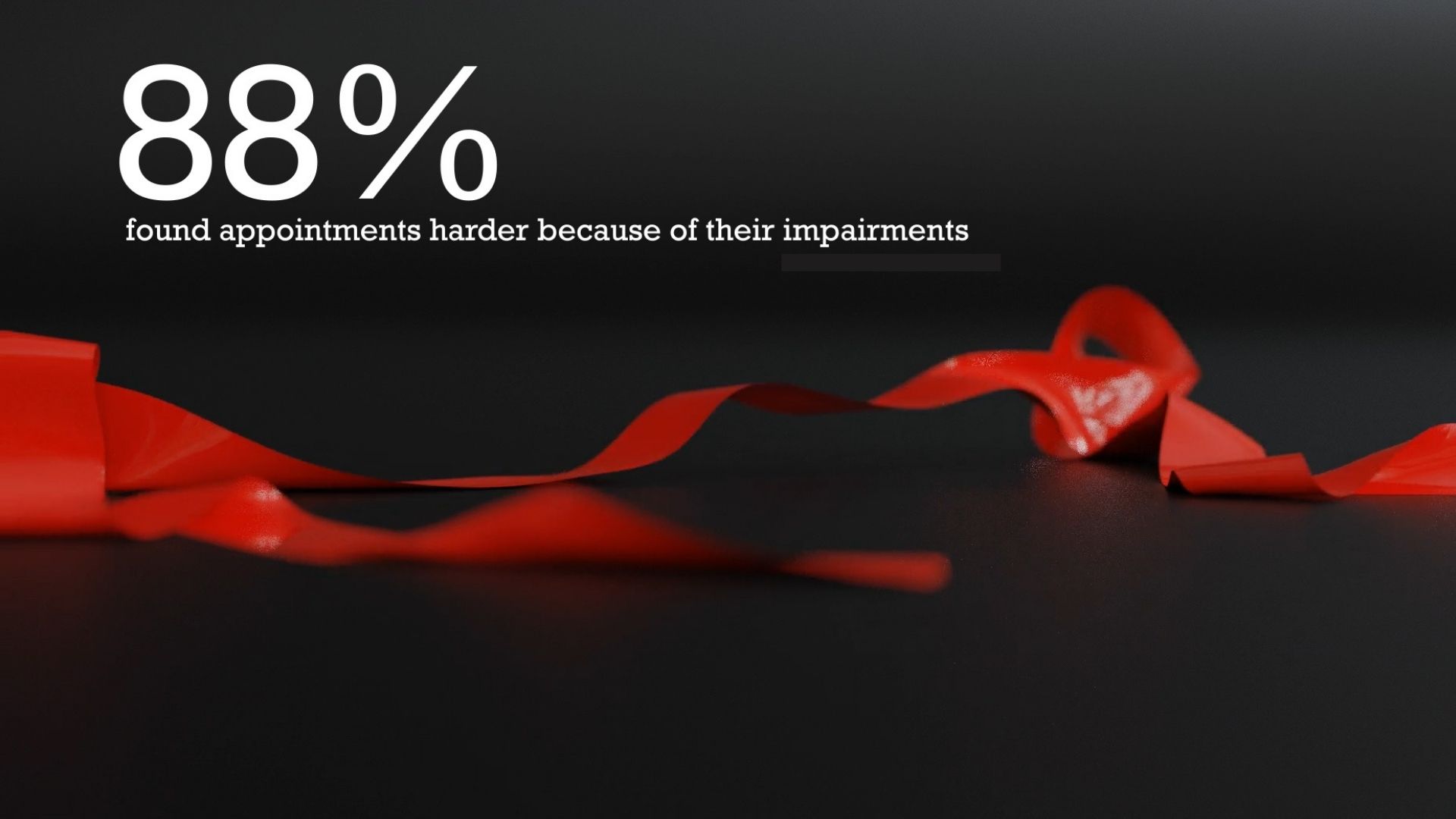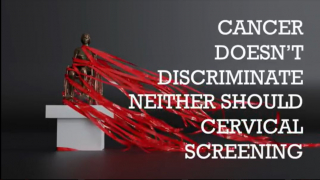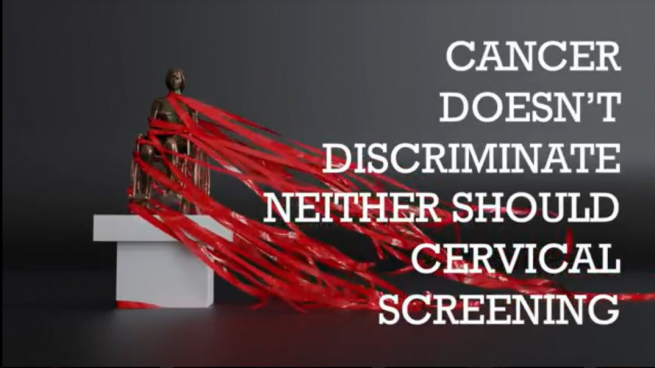
Cervical screening saves lives and its so important that women have regular check-ups. So why did a survey by Jo’s Cervical Cancer Trust highlight that 88% of disabled women found accessing a smear test more difficult because of their impairment? Claire, our Deputy CEO shares her experience of cervical screening as a deaf woman.
6 Monthly Check Ups
A few years ago, I had to go for cervical screening tests every 6 months. It definitely wasn’t my favourite way to pass the time, but I know first-hand how essential it is. You see a smear test showed that I had moderate to severe abnormal cells caused by the HPV virus. Luckily for me it was picked up and I had laser therapy to destroy the abnormal cells. Now that’s resolved I go for a smear test every 3 years and hope for a positive experience. Unfortunately, a lack of deaf awareness frequently creates problems. As a result, I battle with feelings of anxiety before, during and after the test takes place. And I’m not alone. A study by Jo’s Cervical Cancer Trust found that 88% of disabled women found cervical screening tests difficult because of their impairments. Something needs to change!
My First Smear Test
The first time I had a smear test I didn’t really understand what was going on. I’m sure that’s common for many women but when you’re deaf there’s extra things to feel anxious about. For example, at my doctor’s surgery the examination room is right next to the busy waiting room. Before my smear test the nurse left the room for me to get undressed. She said she’d knock to make sure I was behind the cubicle curtain before coming back in. As I can’t hear the knock on the door, I felt panicked that I’d be exposed.
I explained that I was deaf, but unfortunately the nurse didn’t adapt her behaviour to ensure I was properly briefed. When preparing for the test she kept turning her head away to organise the equipment. This made it impossible to lipread, so I lay there with my anxiety growing by the second.
Once my knees were up and a sheet covering me, I couldn’t see what was about to happen. I knew she was talking to me, but I couldn’t hear what she was saying. I said “I can’t hear you” and instead of moving her head so I could lipread, she just stopped talking.
When she inserted the speculum there was no warning, so I tensed my body, and it was really painful. (I’m told by hearing friends that the nurse tells you when it’s about to be inserted and whilst it may be uncomfortable it usually doesn’t hurt.)
I also left the test with no idea of when to expect the results and went home upset and worried.
Deaf Awareness
My next experience of cervical screening was much more positive. The nurse told me her cousin was deaf, so she had great deaf awareness. Here’s what she did to make the smear test a much easier experience for me.
1. She explained the procedure from start to finish before asking me to get ready and lie on the bed.
2. Whilst explaining she maintained eye contact, used gestures, and demonstrated with the speculum what would happen. When I didn’t understand one part, she got a pen and paper and wrote it down.
3. When leaving the room for me to get undressed she said she’d be back in 5 minutes, rather than saying ‘she’d knock’. I looked at the time on my phone, got ready and waited.
4. We agreed that she would tap my leg as a sign that she was about to insert the speculum, giving me a moment to relax and prepare.
5. She understood that I was very anxious because of my previous experience and reassured me.
Make Appointments, Not Assumptions
If you are deaf and have never had a smear test, then please don’t be put off by my initial experience. Cervical Screening saves lives. My aim of sharing such a personal insight is that it will help bring about change, and help the disabled community have equal access to the services others access easily.
For medical professionals reading this hopefully my tips will be useful and improve deaf awareness within your surgery or clinic. Find more insight on our campaign page.

Follow Our Campaign
Read more about our #CervicalScreeningRedTape campaign and follow us on twitter @ETUKUndressing and Instagram @UndressingDisability.
Worried about Cervical Screening?
Visit the Jo’s Cervical Cancer Trust website where you’ll find lots of practical information, advice and a forum where you can pose questions and share experiences.

